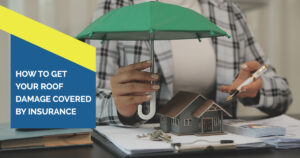Roof repairs can often feel overwhelming, especially when you’re faced with unexpected expenses. Understanding the factors that influence your residential roof repair costs is vital for making informed decisions about your home. In this guide, you’ll discover the various elements that affect pricing, from the types of materials used to the extent of the damage. By gaining insight into these factors, you’ll be better equipped to plan and budget for any necessary repairs, ensuring your roof remains in top condition for years to come.
Understanding Residentail Roof Repair Costs
While navigating roof repair costs can be daunting, gaining a clear understanding can help you make informed decisions. Various factors influence the overall cost, such as the extent of damage, roofing materials, and labor rates. By familiarizing yourself with these elements, you can better prepare for potential expenses and know when to seek professional assistance.
Factors Affecting Cost
Among the primary variables determining roof repair costs are:
- Type of damage
- Roofing material used
- Size and slope of the roof
- Labor costs in your area
- Accessibility of the roof
Knowing these factors can significantly impact the overall expenditure on your roofing project.
Types of Roof Repairs
An understanding of the types of roof repairs can also help you categorize the necessary work. Common repairs include:
- Leaky roof repairs
- Shingle replacements
- Flashing repairs
- Gutter cleaning and repair
- Structural repairs
Assume that identifying the type of repair needed will aid in accurate cost estimations. Residential Roof repairs can vary widely in scope and complexity. To ensure you are well-prepared, it is beneficial to understand what each type of repair entails and how it correlates with labor and material costs. Here are the common types:
- Minor leaks for quick fixes
- Major leaks requiring substantial repairs
- Replacing damaged shingles
- Addressing faulty flashing
- Comprehensive structural work on the roof
Assume that comprehensively addressing your roof’s needs can save you from more extensive repairs in the future.
Common Roof Problems
Some of the most frequent issues homeowners face include leaks, missing or damaged shingles, and deterioration from weather exposure. Identifying these problems early can save you significant time and money in repairs. Regular inspections and maintenance will help you keep your roof in optimal condition and extend its lifespan.
Leaks and Water Damage
Besides missing shingles, leaks can lead to extensive water damage inside your home. These issues may arise from poor installation, age, or weather events. It’s vital to address leaks promptly to prevent mold growth and structural damage that could become costly in the long run.
Missing or Damaged Shingles
With exposure to the elements, shingles can become damaged or even detach from your roof. You may notice curling, cracking, or complete loss of shingles, which can compromise your roof’s ability to shed water effectively.
Understanding the implications of missing or damaged shingles is imperative for protecting your home. Each damaged shingle can create vulnerable spots that allow water to penetrate and further compromise the roofing system. In some cases, repairing or replacing individual shingles may suffice; however, if you notice widespread damage, you might need to consider a more extensive roof repair or replacement to preserve your home’s integrity.
The Roof Repair Process
Assuming you’ve identified an issue with your roof, understanding the repair process can help you make informed decisions. A systematic approach ensures all damage is addressed effectively, allowing your home to maintain its integrity and value. Properly navigating this process can prevent further damage and save you money in the long run.
Inspection and Assessment
On your roof repair journey, the first step is a thorough inspection and assessment. A qualified professional will examine your roof for visible damage and potential underlying issues. This assessment paves the way for an accurate estimate and helps you understand the extent of necessary repairs.
Repair vs. Replacement
With numerous factors to weigh, deciding between repair and replacement can be challenging. It often depends on the severity of the damage, the age of your roof, and your budget. Repair might suffice for minor issues, while more extensive damage could warrant a full replacement.
Plus, understanding the long-term implications of your decision is vital. Repairs may be cheaper initially, but if your roof is nearing the end of its lifespan, investing in a replacement could save you money and stress. Your roofing professional can guide you through the evaluation, helping you choose the best option for your specific situation.
Budgeting for Residential Roof Repairs
Your roof is a significant investment, and understanding the costs associated with repairs is vital for effective budgeting. Start by assessing the age and condition of your roof to estimate potential expenses. Factor in the type of materials needed and the scale of work identified in your roof inspection. This proactive approach ensures you’re financially prepared, allowing you to maintain the integrity of your home and safeguard against unexpected financial strain.
Estimating Costs
Any homeowner should begin by gathering quotes from multiple roofing contractors to get a clearer picture of repair costs. Prices can vary widely based on materials, labor, and the severity of the damage. It’s crucial to compare not just the figures but also the reputations of the contractors, as the quality of work can significantly impact longevity and further costs down the line.
Finding Financial Assistance
Costs can quickly add up when facing unexpected roof repairs, but various programs can help alleviate this financial burden. Look into local government grants, low-interest loans, and nonprofit organizations that support housing repair. Many communities offer assistance to homeowners in need, especially for those who meet specific income criteria or face emergencies.
And, be proactive in your search for financial assistance by reaching out to local housing authorities and charity organizations. They may provide resources or connect you to programs designed to support homeowners facing unexpected repair costs. Additionally, consider discussing flexibility with your roofing contractor, who may offer payment plans or financing options to help distribute the costs over time, making repairs more manageable for your budget.
Choosing a Residential Roof Repair Service
Keep in mind that selecting the right residential roof repair services
is vital to ensuring your repair is handled effectively and professionally. Look for companies with solid reputations, appropriate insurance, and a strong track record of completed projects. A well-chosen contractor can save you money and stress in the long run.
Questions to Ask
Any reputable contractor will expect you to have questions about their services, experience, and pricing. Don’t hesitate to ask for references, insurance details, warranties, and timelines. These inquiries will help you gauge their professionalism and whether they are the right fit for your specific roofing needs.
Evaluating Credentials
Across the industry, it’s important to evaluate a contractor’s credentials to ensure you’re making an informed decision. This includes checking their licensing, insurance coverage, and certifications from recognized roofing manufacturers. A contractor with the right credentials is more likely to apply quality materials and follow best practices.
Indeed, verifying a contractor’s credentials can protect you from potential liability and subpar work. Start by asking for a copy of their contractor’s license and confirming it with your state’s licensing board. Additionally, check that they carry both general liability and worker’s compensation insurance to shield you from any accidents on your property. Lastly, inquire whether the contractor has certifications from manufacturers, as this often signifies specialized training and adherence to industry standards, ensuring a higher level of service and artistry.
DIY vs. Professional Residential Roof Repair
Now that you understand the factors influencing roof repair costs, it’s crucial to weigh the benefits of DIY methods against hiring professionals. While tackling minor repairs yourself can save money and provide a sense of accomplishment, significant issues often require the expertise of seasoned contractors. Assess your skills, the complexity of the job, and potential long-term implications to make an informed decision.
When to DIY
Above all, you should consider DIY repairs for simple tasks like replacing a few shingles or sealing small leaks. If you have a basic understanding of roofing materials and safety precautions, these manageable projects can help you save on labor costs while maintaining your home’s integrity.
Risks of DIY Repairs
By opting for DIY repairs, you may face several risks that could endanger both your home and your safety. Without proper training and experience, you might misdiagnose the issue, leading to further damage and increased repair costs down the line. Additionally, working at heights without the right equipment and knowledge can present serious safety hazards.
When you attempt DIY repairs without the necessary skills or precautions, you run the risk of causing more harm than good. Inadequately repaired roofs can lead to leaks, increased energy costs, and structural damage over time. Furthermore, you might unknowingly void warranties on roofing products and insurance claims related to roof damage, ultimately costing you more in the long run. Therefore, to avoid such things, you should seek professional help. To get expert residential roof repair, you can reach out to us. With our reliable service and attention to detail, you can enjoy peace of mind knowing your roof is in excellent hands.
Final Words
From above, understanding residential roof repair costs empowers you to make informed decisions about your home’s maintenance. By assessing various factors such as materials, labor, and the extent of damage, you can budget accordingly and avoid unexpected expenses. Whether you opt for DIY roof repair solutions or hire roofing contractors, being knowledgeable about costs will ensure you achieve the best value for your investment in your home’s roofing system.
When it comes to residential roof repair, My Pro Roofing is the trusted expert you can count on. Whether you’re dealing with leaks, damaged shingles, or storm-related issues, our skilled team is dedicated to restoring your roof’s strength and durability. Protect your home and enhance its value with expert residential roof repair.
FAQs
Q: How can I estimate the cost of my roof repair?
A: To estimate roof repair costs, start by assessing the damage. Inspect your roof for leaks, missing shingles, or sagging areas. Then, you can request quotes from local roofing contractors who can provide detailed estimates based on the condition of your roof and the required repairs. It’s advisable to get multiple quotes for a comparable analysis and to find the best value.
Q: Are there any ways to reduce roof repair costs?
A: Yes, there are several strategies to reduce roof repair costs potentially. Regular maintenance and inspections can help identify minor issues before they escalate into larger problems. Additionally, opting for asphalt shingles tends to be more cost-effective than other materials. Homeowners might also consider DIY repairs for minor issues, provided they have the skills and safety measures in place.
Q: How does insurance affect my roof repair costs?
A: Homeowners’ insurance may cover roof repair costs depending on the cause of damage and your policy’s terms. For example, damages from storms or unforeseen events may be covered, while wear and tear typically are not. It’s important to review your policy and discuss coverage specifics with your insurance agent to understand your financial responsibilities regarding roof repairs.
Q: What should I look for when hiring a roofing contractor for repairs?
A: When hiring a roofing contractor, it’s important to consider their experience, licensing, and insurance coverage. Look for reviews or references from previous clients to gauge their reputation. Additionally, ask for detailed estimates that outline the scope of work, materials to be used, and timelines. Ensuring that the contractor offers a warranty for their work can also protect you in case of future issues.





